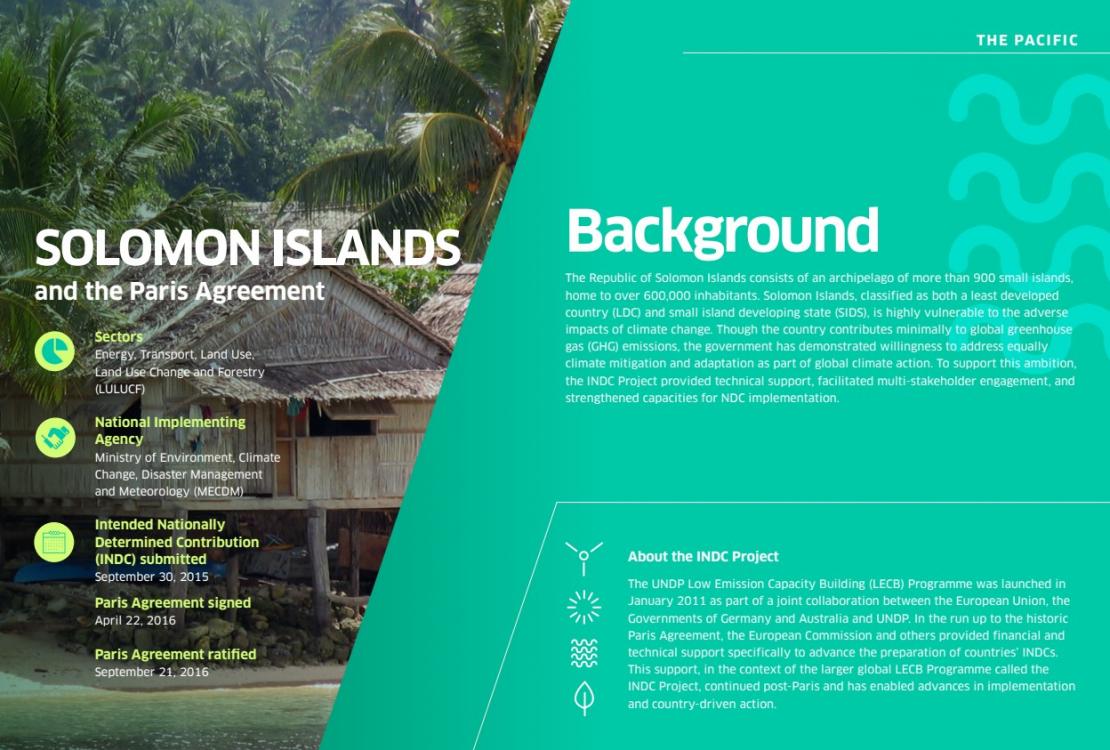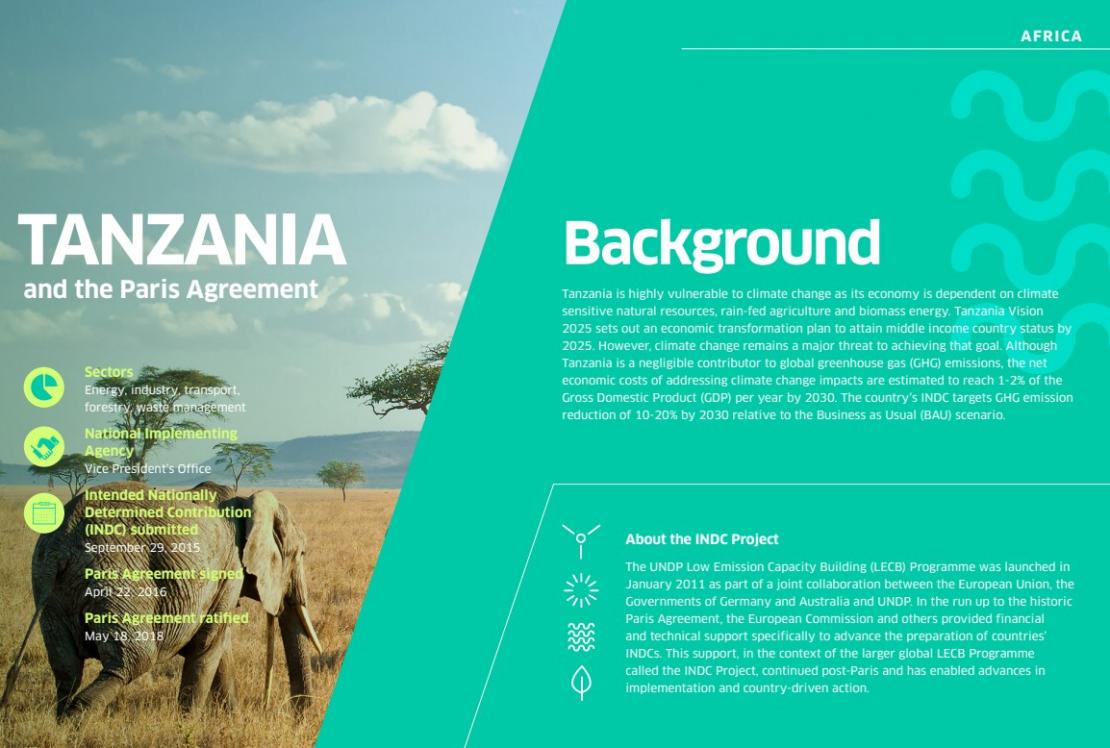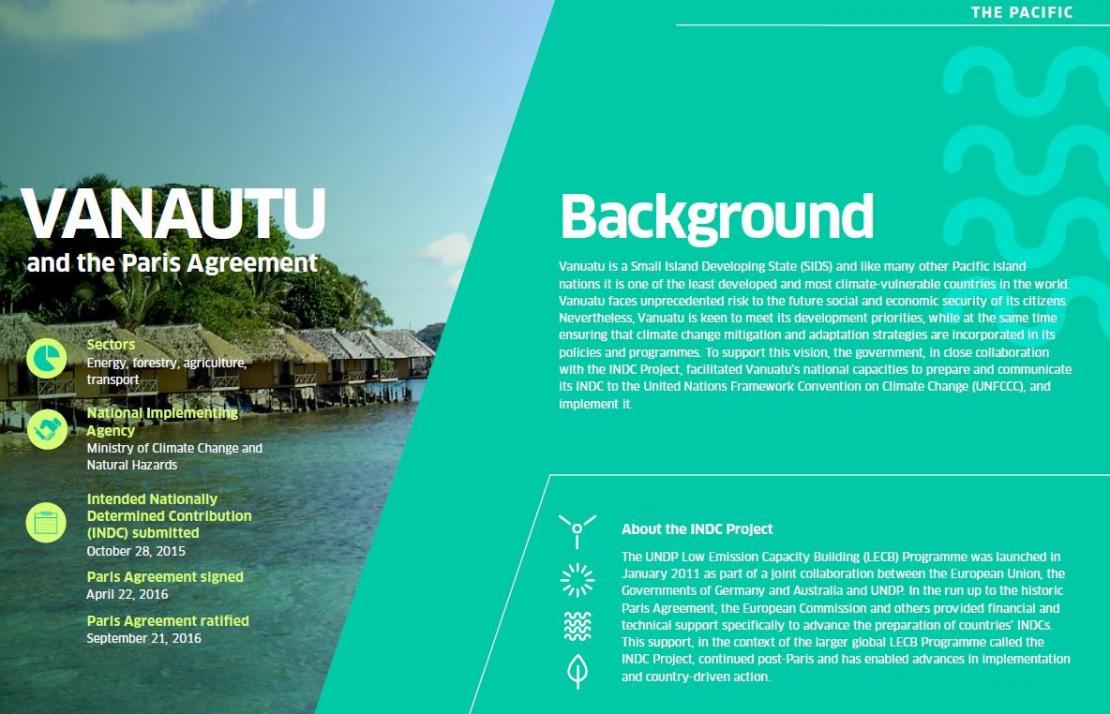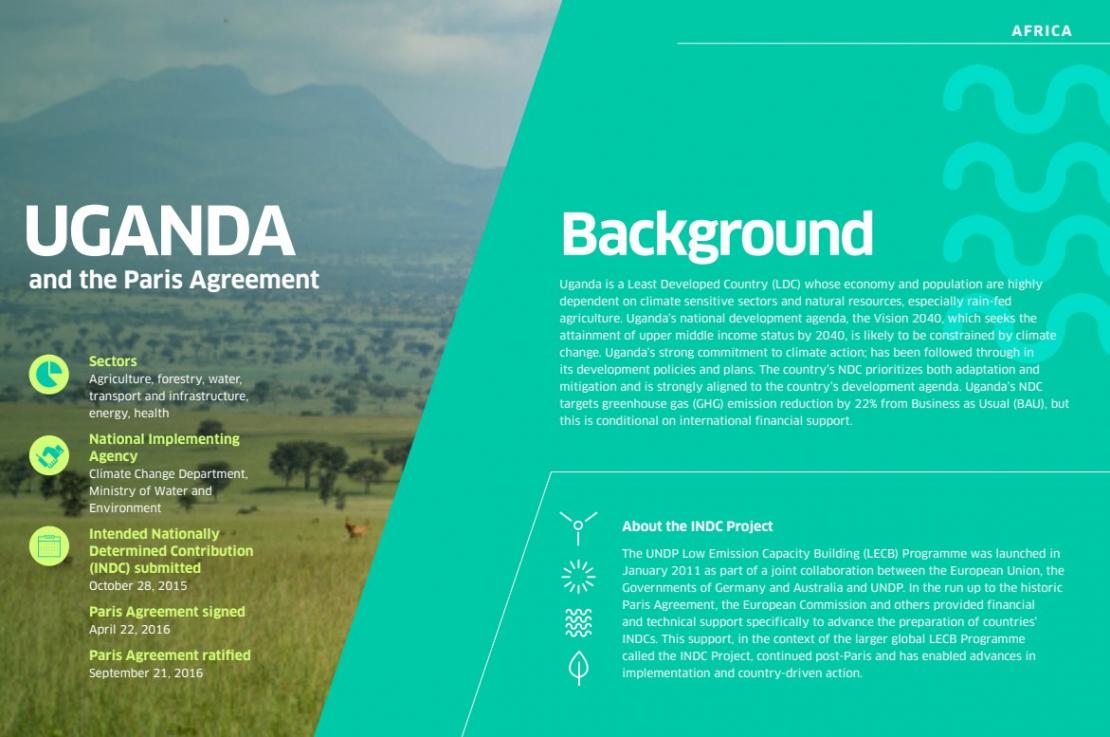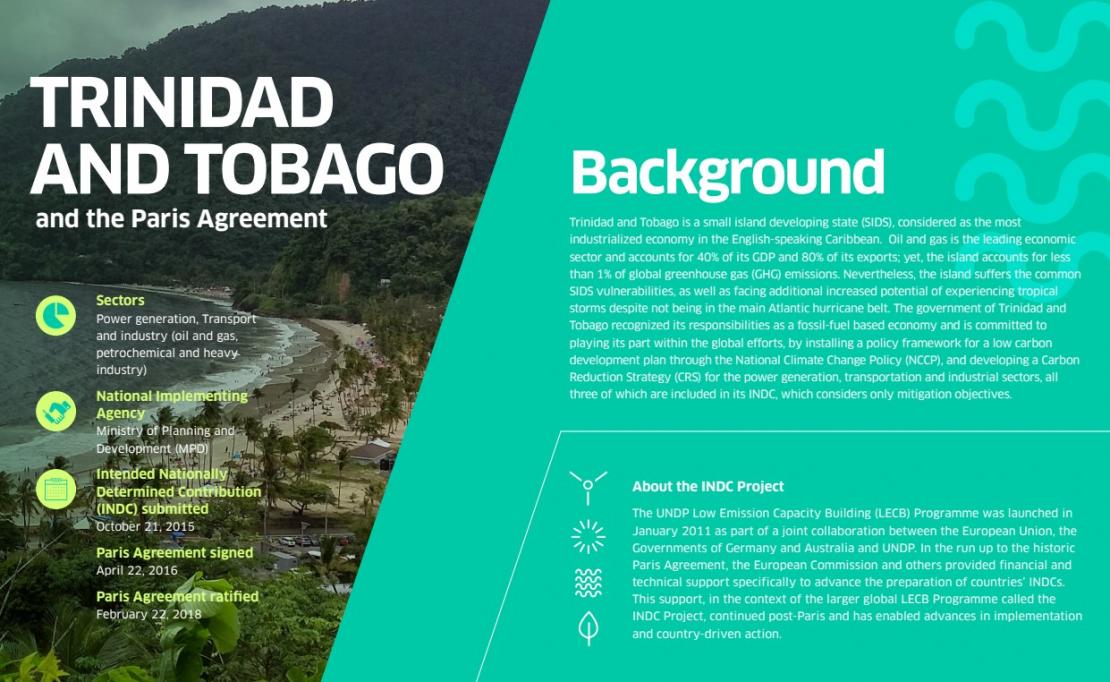The Republic of Solomon Islands consists of an archipelago of more than 900 small islands, home to over 600,000 inhabitants.
Suriname has made progress towards climate-resilient and compatible development through a number of green policies and initiatives – in particular,…
The country’s INDC targets GHG emission reduction of 10-20% by 2030 relative to the Business as Usual (BAU) scenario.
The government of Vanuatu, in close collaboration with the INDC Project, facilitated Vanuatu’s national capacities to prepare and communicate its…
Uganda's NDC prioritizes both adaptation and mitigation and is strongly aligned to the country’s development agenda. Uganda’s NDC targets greenhouse…
Trinidad and Tobago is a small island developing state (SIDS), considered as the most industrialized economy in the English-speaking Caribbean.
